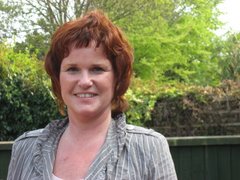8.30 Go poking around in the basement of my apartment block to read gas and electricity meters. I can not unlock the relevant door or find the concierge but at least there are some boiler-like noises coming from behind one door – the heating and hot water, which serves the whole block, went off in the middle of the night. I walk through place du Luxembourg and note there are not the usual numbers of people around. Get to office and continue with paperwork as the working groups have been cancelled.
11.00- 12.00 Give evidence to Lords Committee. All taped and stenographed. We have lots more to cover but reckon that can be done this evening at dinner.
12.30 – 18.30 A speaking lunch followed by a seminar on the Euro. The Euro has now overtaken the dollar on just about everything: bonds, stock and issued currency. Exchange rates are no longer the constant issue that they were. Just as the US does not care about the value of the dollar against other currencies, few in EU care about the €/$ exchange rate. 74% in the UK think the Euro a major currency. 80% of Europeans do not link the Euro with ‘being European’. It is pointed out that the full benefits of a single currency area will not be realised until we have the Single European Payments Area (SEPA) making cross border payments as easy and cheap as national ones. This of course is why the Payments Services Directive is so urgent. (Nothing happening on that until the end of this month).
There is recognition that there was inflation, especially in services such as bars and cafes, on introduction of the Euro. Many claimed surprise: the UK of course had experience of decimalisation so we would have been more prepared indeed this was flagged as an issue. There is a general consensus that it was not a large amount of measured inflation, so it did not show up in total figures, but it was experienced on things that young people in particular noticed (coffees, bars) so a high perception of inflation. There is now some indication that competition then restored prices. Perhaps it could be said that there were some price increases to cover businesses’ costs of conversion.
Didier Reynders (Belgian Deputy Prime Minister and Finance Minister) said that the Euro was much stronger now than in 2000, which could be seen in the different response to oil prices rises now compared with 2000. However, to be a great currency there had to be more political direction for the Euro and without the streamlining of the EU, which would take some time, there was a lot of interest in moving forward with political direction just within the Eurogroup, and within that taking decisions on a qualified majority basis, even when it was still a unanimity issue in Council. That presumably means more coordination in the fiscal area.
18.30 Shuffle papers and then decide to walk to the venue for the dinner with the Lords. Go via my flat to see if the heating and hot water returned, which they have.
20.00 Dinner at Chez Marius. Very interesting, I deal with carousel fraud and VAT reform possibilities and Richard Ashcroft (Tory) and Richard Corbett(Labour) deal with constitution, EU ‘own resources’ and budgetary matters. Walk back to flat for about 11.00pm.
The blog from Sharon Bowles MEP - updated each fortnight

Blog Archive
-
▼
2007
(106)
-
▼
January
(15)
- Committee Places Decided
- Russia and Roaming
- Start of Mini-Plenary week
- Early finish and travel delays!!
- Tax, Damages and my First Report
- Committee Week. Late Start
- Away Day
- Up with the lark and new Lib Dem leader
- Three votes and a coronation
- Welcome Bulgaria and Romania
- Russian Questions
- Kangaroo and Carousel
- Boilers, Lords and the Euro
- Fiscal Fraud
- 8 – 11 January 2007 Group Week
-
▼
January
(15)
About Me
- Sharon Bowles MEP
- I am a Liberal Democrat Member of the European Parliament representing the South East of England.